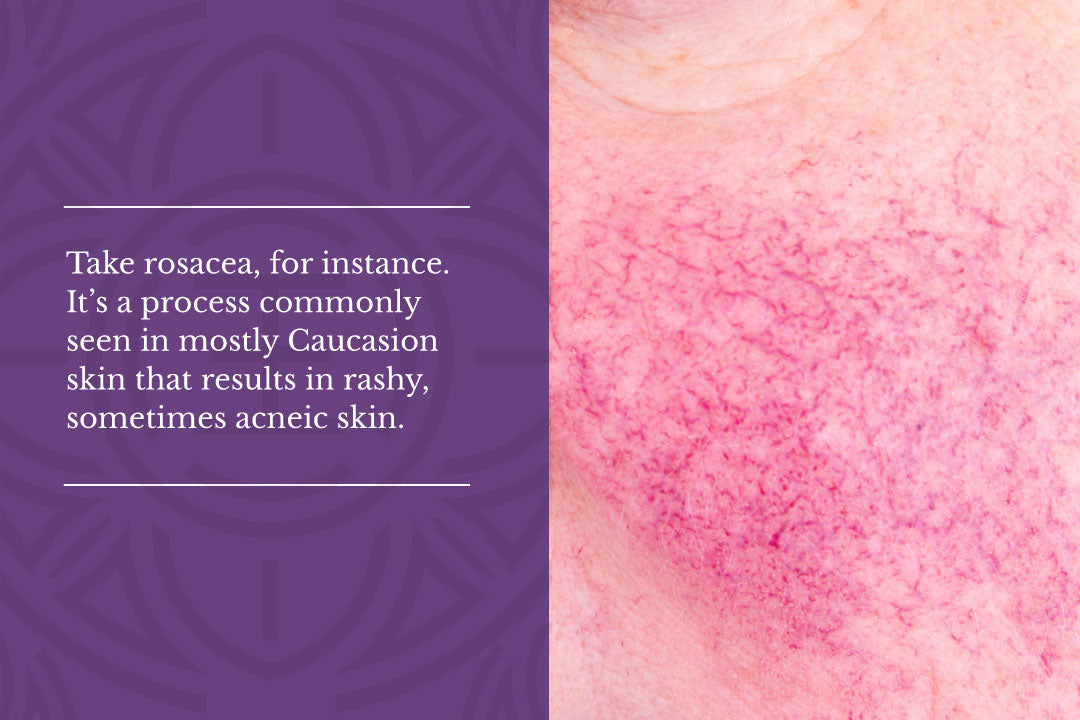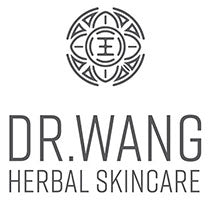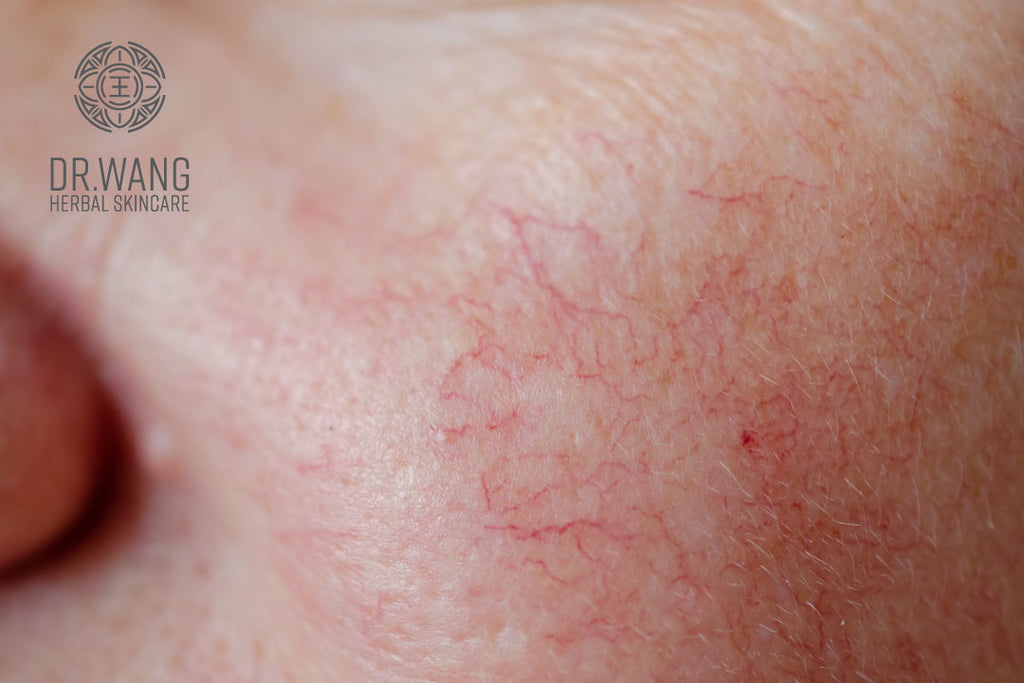Dealing with troubled skin can be a frustrating experience. Aside from your disdain and discomfort, sufferers also often question whether they’re on the right path of treatment or not. Or, looking for a better way, many people turn to holistic practices such as Ayurveda and Traditional Chinese Medicine.
Having been around for centuries, Traditional Chinese Medicine, or TCM, has been gaining more favor among Western medicine believers recently.
So what can you expect from a visit to a TCM practitioner when you’re complaining of dry, itchy, rashy skin?

A Different Sort of Examination
When you visit a TCM practitioner for a skin problem, chances are that your skin will be the last thing they’ll look at. They may only give it a cursory glance, at that. This may be a little disconcerting to the beginning seeker. You’ll need to have a little faith. Unlike much of Western medicine, which is occupied with treating disease - or rather, the symptoms of a disease, TCM is concerned with your entire well-being. It operates under the understanding that all of your body systems are connected, and that the flow of energy and blood (or stagnation of that blood or energy) has a great effect on all other areas.
During the course of your exam, the practitioner will listen to your complaint and story. They’ll not only pay attention to what you’re saying, but they’ll also take note of your demeanor, your voice, and the movements you make. They’ll perform some aspects of an exam you’re familiar with like listening to your heart and checking your pulse (more on that later!). They’ll also do some pretty interesting things like looking at your tongue, feeling your skin, and poking at you to feel your muscle tone.
You need to remember to be patient, as all things in TCM are intimately connected, and each aspect of your health can relate to others. Something as mundane as the color of the front and back (they may be different) of your tongue can tell your examiner a lot about what is going on internally.

Looking At Rosacea From a Western Perspective
The concept of believing that your body systems are interconnected and closely tied with the flow of your vital Qi energy through your body leads TCM to view skin conditions in a different light than Western medicine. Take rosacea, for instance. It’s a process commonly seen in mostly Caucasion skin that results in rashy, sometimes acneic skin. It can be worsened by the sun, alcohol, stress, and hot foods, and may cause eye irritation.
From a Western perspective, rosacea is multifaceted, coming from both neurologic and vascular issues. The nerves that control the smooth muscles get over-dilated or over-stimulated, so the blood expands. Some say that Demodex, a parasitic mite, may be at play, some say rosacea is inflammatory. “There is definitely a barrier component,” muses Dr. Steven Wang, board-certified dermatologist and Director of Dermatologic Surgery and Dermatology at Memorial Sloan-Kettering Cancer Center. “The skin’s top layer becomes too thin, causing irritants and allergens to get in.” Some believe it’s caused by the sun as a result of collagen break-down. Collagen is the fibrous structure that binds blood vessels down, so when it’s weakened, the vessels can expand easily.
Dr. Wang says, “The closest thing in Western thought when dealing with rosacea to TCM is viewing the neurologic aspect.” It doesn’t really look any deeper than that, more concerned with using topicals to treat a specific skin issue. “It rarely dives deeper into internal organs. [Most people] never think about that.” Western medicine is getting a little closer to a holistic approach by paying attention to the microbiome of the gut and the skin, but that’s usually about as far as it goes. TCM will consider the health of the heart, liver, kidney, lungs, gastrointestinal tract, and more.

Looking At Rosacea From a TCM Perspective
“In TCM, the condition of the skin is a direct manifestation of something going on deep in the internal body,” explains Dr. Wang. “The symptoms or issues and their causal factors can be very complex,” he continues. “That is a challenge.”
TCM focuses on the issue of the meridians, specific pathways where energy, or Qi, flows through the body. These meridians are invisible, though have been studied and followed for thousands of years. In addition, TCM also pays close attention to the balance of yin and yang energies, the Five Elements, and the Blood theory.
Let’s get back to the pulse. “TCM’s way of looking at the pulse is very different from that of the West,” Dr. Wang begins. “We gage how fast, and can assess the vitality of each organ structure based on that pulse.”
“The tongue can show manifestations of trouble.” Different areas of the tongue represent different organ systems, and the color can tell the practitioner a lot about how those systems are feeling. If an area of the tongue is pale, there could be a lack of blood qi or yang energy in that system. Too red could mean too much heat. A purplish color could indicate stagnation of either blood or qi.
Speaking of Qi
The idea of Qi, or the body’s sacred energy, is the cornerstone of Traditional Chinese Medicine. “You need both Qi and blood. Qi is the energy that is carried within you. It is related to blood.”
Yin and yang are the different energy types. Yin is the more quiet type of energy; cooler. Yang is the louder, harsher, hotter energy. In order for everything to be as it should, the two should be in balance, not one overcoming the other. Going back to rosacea, “There may be too much redness in the cheek, so that could indicate too much yang. The yin/yang balance is off,” says Dr. Wang, so the practitioner may recommend more yin to balance. That may come in the form of specific foods or exercise.
Diagnosing and treating a skin condition can be a complicated process, though one well-worth the time, as TCM practice has a way of bringing other troubles you never even knew you had back into balance. It’s a different experience, for sure, but one that is well worth it in the end!




